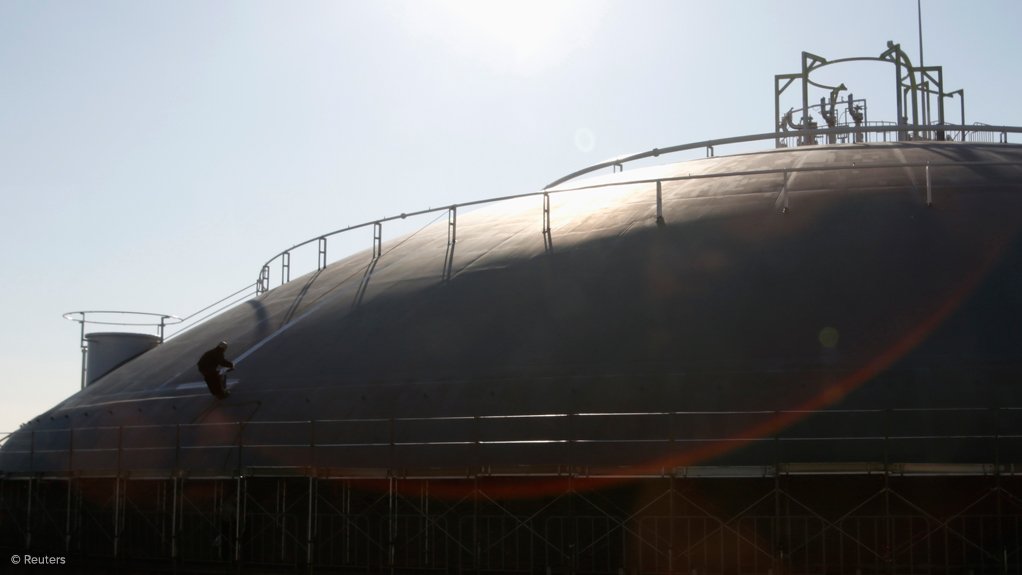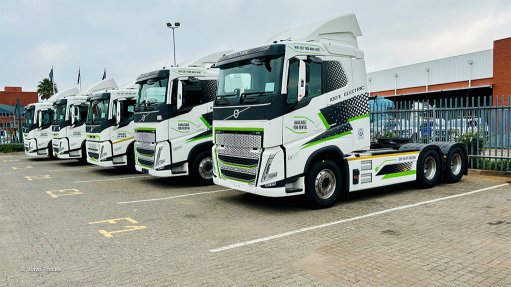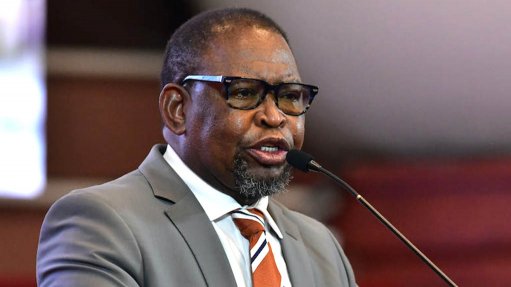SA urged to import natural gas ahead of possible local gas finds
Lamenting a “chicken and egg” scenario in the local liquefied natural gas (LNG) industry, South African Oil and Gas Alliance CEO Ebrahim Takolia has argued that South Africa should first increase the size and distribution network of the local gas market – initially supplied with imported gas – rather than delaying the industry’s development until the existence of significant onshore and offshore gas reserves can be confirmed.
Addressing the Gas Africa conference, in Johannesburg, he asserted that the current market could initially be expanded through the importation of LNG from countries such as Nigeria and Angola, in West Africa, and Mozambique and Tanzania, in East Africa.
This would require the development of natural gas import and storage facilities to facilitate consumption and the promotion of industrial, commercial and residential gas use to increase its share of the country’s energy mix – currently at 2% and growing.
Elaborating on sources for finance for the required infrastructure development, which he described as “substantial”, Takolia said project finance would need to be backed by State-funded institutions or large global players in the natural gas industry.
“However, there is no need for the [State] or provincial governments to fund infrastructure upfront. Partnerships with reputable companies that have a proven record of developing these type of complex projects is key,” he urged.
Should exploration for onshore and offshore gas in South Africa thereafter prove successful, local gas could then be used to replace imported gas supply.
“A fully integrated natural gas industry requires a significant and steady supply of offshore or shale gas. Shale gas and offshore exploration needs to yield reserves of at least ten-trillion cubic feet that can be extracted cost-competitively relative to imported African and global gas supplies to support a complete South African natural gas value chain,” he commented.
TEN-YEAR TIMELINE
Elaborating on “best case” timelines for the development of an oil and gas industry in South Africa, Takolia maintained that a commercially viable offshore gas industry could be created in the next seven to ten years should offshore exploration prove successful.
“In terms of the onshore scenario, the production of gas on a commercial scale from onshore exploration could [happen] within ten years if exploration is fruitful,” he noted.
Natural gas was currently piped to South Africa through a 865-km-long pipeline with a capacity of 4.7-billion cubic metres a year from the Pande and Tamane gasfields in Mozambique.
In addition, national oil company PetroSA was exploiting gas from long-established offshore fields near Mossel Bay, converting this into liquid fuels.
CONSUMPTION POTENTIAL
Looking to consumption, Takolia believed the greatest potential for LNG consumption in South Africa lay in power generation, replacing carbon intensive coal-based power with environment-friendly gas-generated power.
In the industrial sector, electricity and isolated gas supplies could be replaced with piped gas, while electricity for cooking and heating in the residential sector could also be replaced with a direct gas supply.
He added that the midstream and downstream natural gas value chains represented significant opportunities for local manufacturing and supply, procurement, technology, research and development and skills development.
THE GLOBAL MARKET
Discussing global trends, Takolia said natural gas was “finding its place at the heart of the energy discussion” owing to the fact that there were abundant supplies of natural gas in the world, many of which could be developed and produced at relatively low cost.
Globally, shale gas development over the past decade had substantially increased the assessments of resources producible at a modest cost.
“The role of natural gas is likely to continue to expand, and its relative importance is likely to increase even further when greenhouse-gas emissions are constrained.
“Moreover, new technologies continue to make it more attractive as a source of energy,” he said, adding that this appeal would be further bolstered by the likely narrowing of the price gap between oil and gas in the coming years.
Takolia predicted the growth rate of the global LNG market at between 6% and 7% a year owing to the more accessible cost of regas infrastructure and the reliability of LNG supply by most independent oil companies.
Demand, meanwhile, was forecast to grow at 1.7% a year. Gas would contribute 23% to the global energy mix by 2035.
“The greatest portion of demand growth is expected from the power and [industrial] sectors, based on the easy-to-handle and increased efficiency characteristics of natural gas.
“Demand from these industries is forecast to grow at 1.8% a year and 2% a year respectively to 2035,” he noted.
Natural gas was also expected to become a significant source of global electricity supply, with the amount of electricity sourced from natural gas projected to grow at a yearly rate of 2.4% until 2035.
Comments
Press Office
Announcements
What's On
Subscribe to improve your user experience...
Option 1 (equivalent of R125 a month):
Receive a weekly copy of Creamer Media's Engineering News & Mining Weekly magazine
(print copy for those in South Africa and e-magazine for those outside of South Africa)
Receive daily email newsletters
Access to full search results
Access archive of magazine back copies
Access to Projects in Progress
Access to ONE Research Report of your choice in PDF format
Option 2 (equivalent of R375 a month):
All benefits from Option 1
PLUS
Access to Creamer Media's Research Channel Africa for ALL Research Reports, in PDF format, on various industrial and mining sectors
including Electricity; Water; Energy Transition; Hydrogen; Roads, Rail and Ports; Coal; Gold; Platinum; Battery Metals; etc.
Already a subscriber?
Forgotten your password?
Receive weekly copy of Creamer Media's Engineering News & Mining Weekly magazine (print copy for those in South Africa and e-magazine for those outside of South Africa)
➕
Recieve daily email newsletters
➕
Access to full search results
➕
Access archive of magazine back copies
➕
Access to Projects in Progress
➕
Access to ONE Research Report of your choice in PDF format
RESEARCH CHANNEL AFRICA
R4500 (equivalent of R375 a month)
SUBSCRIBEAll benefits from Option 1
➕
Access to Creamer Media's Research Channel Africa for ALL Research Reports on various industrial and mining sectors, in PDF format, including on:
Electricity
➕
Water
➕
Energy Transition
➕
Hydrogen
➕
Roads, Rail and Ports
➕
Coal
➕
Gold
➕
Platinum
➕
Battery Metals
➕
etc.
Receive all benefits from Option 1 or Option 2 delivered to numerous people at your company
➕
Multiple User names and Passwords for simultaneous log-ins
➕
Intranet integration access to all in your organisation





















